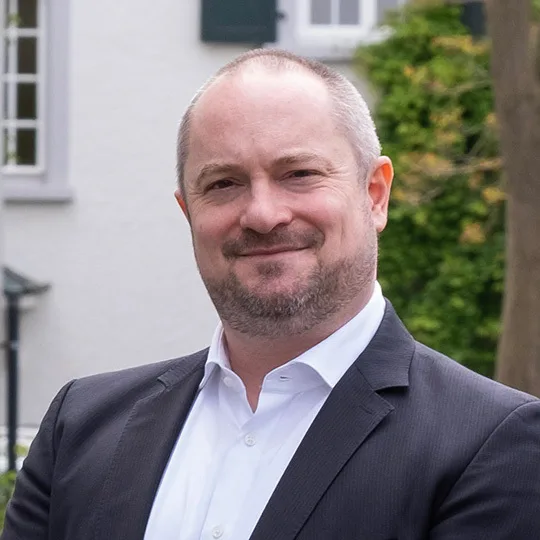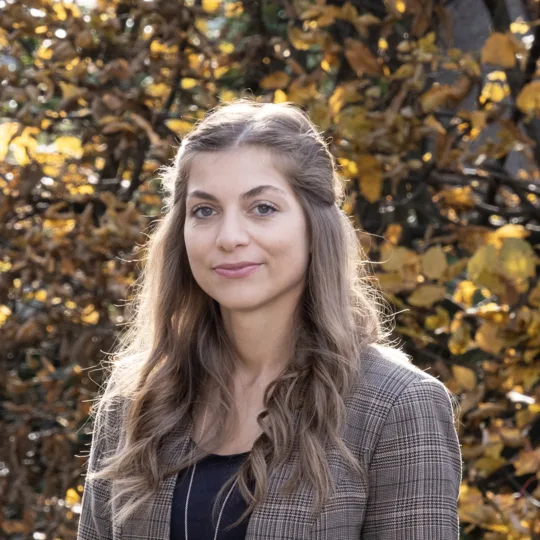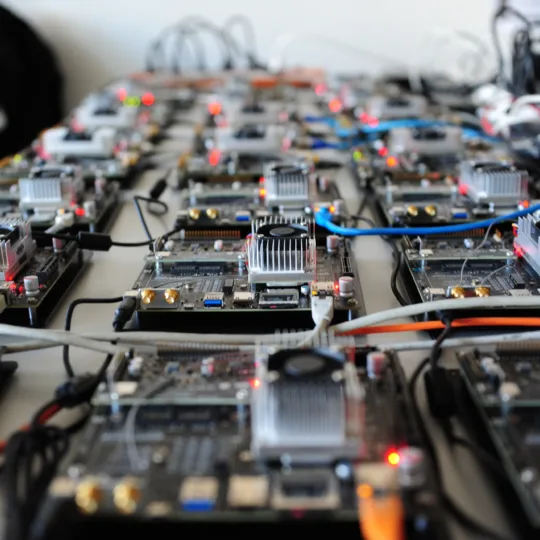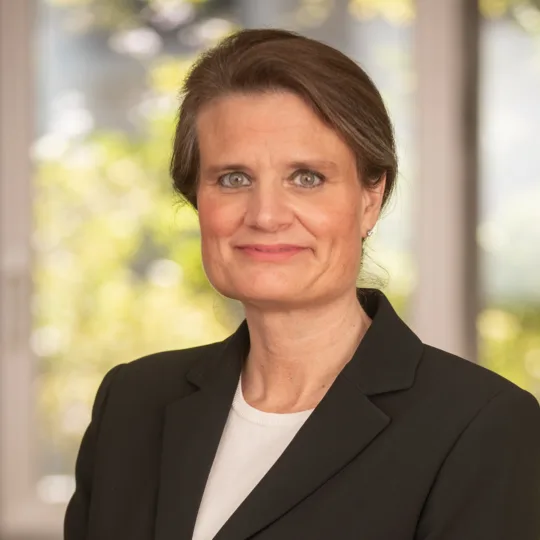Institutes for Advanced Study: Centres for academic excellence and international networking
SERI supports selected Institutes for Advanced Study (IAS) in Europe as a means of furthering international cooperation in education. In this interview, the rectors of the three institutes – Institute for Advanced Study in Berlin, New Europe College (Bucharest) and the Centre for Advanced Study (Sofia) – explain current challenges and the role that IAS play in the academic landscape.
An Institute for Advanced Study (IAS) offers selected university lecturers (referred to as fellows) the opportunity to spend one or two semesters at a renowned institute abroad. These fellowships offer a temporary break from everyday university life. They stimulate creativity and facilitate international and transdisciplinary interactions with Europe's best scholars. Fellows – including those from Switzerland – are selected by an international panel of scholars on the basis of academic excellence. The Institute for Advanced Study in Berlin (WiKo), the New Europe College (NEC) in Bucharest and the Centre for Advanced Study (CAS) in Sofia are among the IAS supported by SERI.
What are your institution's priorities for the 2022/2023 academic year?
Barbara Stollberg-Rilinger (WiKo): Our institute does not have its own research agenda, but creates an environment that allows fellows to pursue their individual projects under the best possible circumstances. However, we do have certain thematic clusters. This year, for example, we chose 'Truth / Knowledge / Deception' and 'Migration / Egalitarianism / Diversity'. One focus of our own institutional work has long been defending academic freedom, which is increasingly under threat in more and more countries. The recent idea of establishing a partner institute in Ukraine is part of this endeavour.
Valentina Sandu-Dediu (NEC): In addition to its core programme of awarding postdoctoral excellence fellowships and in the spirit of Blue Sky Research, NEC explores other thematic areas such as the integration of digital technologies into research in the humanities, new challenges to democracy and social well-being, and the contribution of the arts to contemporary society.
Diana Mishkova (CAS): We see three priorities for this year: firstly, extending the fellowship programme for young Bulgarian (diaspora) scholars. Secondly, consolidating the Institute's position as a centre of excellence for multifaceted research focusing on Central, Eastern and Southeastern Europe. Thirdly, after COVID-19 restrictions, resuming face-to-face contacts between researchers and the broader public through a series of public lectures and open on-site events.
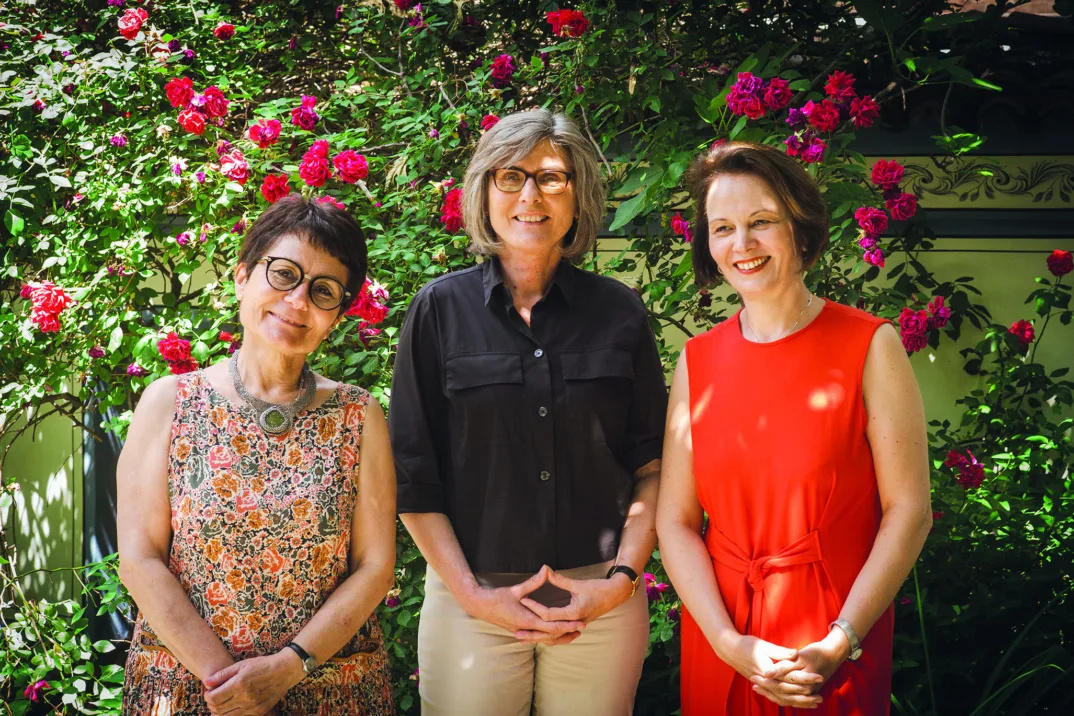
What role can an IAS still play today in an academic and research environment that is as much as ever characterised by international collaborations and interdisciplinarity? What added value does a researcher derive from taking time off from the usual academic business for a semester or even a year?
Barbara Stollberg-Rilinger: In fact, nearly every academic institution today claims to be internationally focused and interdisciplinary. Especially in Germany, smaller, university-based fellowship programmes are springing up like mushrooms. However, WiKo still has some unique selling points. Firstly, its institutional independence from universities and its status as a 'national' IAS. Secondly, the breadth of disciplines and academic cultures represented: we invite fellows from the natural sciences, social sciences and humanities, plus a few artists each year. This always results in surprising stimuli. Thirdly, the everyday life of fellows on our campus, who eat, discuss and spend their free time together for a year. And finally, the particularly wide range and quality of services for fellows and their families. This allows fellows to concentrate fully on their freely chosen projects and focus on challenging tasks that they are normally unable to calmly focus on due to everyday university activities and constraints. Given the increasing pressure placed on academics to publish or perish, perform administrative duties, teach and secure funding, this free space is more valuable than ever before.
Current political developments in Europe and around the world highlight the fact that the culture of the ‘open society’, in which objective and democratic discourse and informed criticism are possible, cannot be taken for granted. Can and should the IAS play a role in this context as independent institutions?
Diana Mishkova: Recent political developments in Europe underscore the important role that IAS are called upon to play. In countries like Bulgaria (and Romania) respect for democratic discourse and informed criticism has never been a given. The main societal role played by CAS has traditionally been to use its academic resources and instruments to express ‘open society’ values and to foster critical thinking and unconventional approaches to political and social challenges.
Valentina Sandu-Dediu: NEC's unique format in the Romanian context gives it a certain degree of impartiality and allows it to continue pursuing cutting-edge research. Under the current political conditions, any state interference in the management of the institution would mean a drastic change in the way we work, as it would affect decision-making autonomy. We are an independent institution, which means that the NEC must continue to serve as an academic and neutral platform for debate of all kinds, where courtesy and freedom of dialogue are respected.
WIKO, NEC and CAS
The Institute for Advanced Study in Berlin was founded in 1981 as an independent, interdisciplinary research institute based on the Institute for Advanced Study model in Princeton. Every year, it offers around 45 fellows from all over the world the opportunity to spend up to 10 months pursuing a project of their choice. Most fellows come from the humanities, social sciences and natural sciences, but they also meet people who are far removed from the academic world: composers, writers, journalists, directors or diplomats.
The New Europe College is a Romanian IAS founded in 1994 by Professor Andrei Pleșu. It provides an institutional and highly international framework enabling around 40 fellows each year from the humanities and social sciences to conduct their research projects. This IAS offers a stimulating environment for interdisciplinary dialogue and critical debate.
Founded in 2000, the Centre for Advanced Study Sofia is the youngest of the three institutes. It receives around 20 fellows per year from the humanities and social sciences. In addition to individual fellowships for outstanding researchers, it also offers an environment for collaborative projects among scholars from different fields and regions.
Crises such as the COVID-19 pandemic require IAS to be creative and flexible in order to maintain their key activities and develop their formats. What other, more long-term challenges do you see for the future of WiKo?
Barbara Stollberg-Rilinger: Although freedom of research is guaranteed under the German constitution, our country is experiencing increasing pressure both from within and without to restrict this freedom. Firstly, politicians are increasingly tying funding to expectations of immediate impact and knowledge transfer and are setting certain research agendas, which leave less and less room for us to freely choose research topics. Secondly, I see a creeping threat to academic freedom arising from the fact that limitations are being placed on what can and cannot be said. And these limitations are coming from both ends of the political spectrum.
NEC and CAS are somewhat younger than the WiKo, but by now, they also look back on nearly thirty and twenty years, respectively, of history and development. From your point of view, what are some of the key milestones from the past few years?
Valentina Sandu-Dediu: One of the achievements of recent years has been that we have been able to maintain the NEC core programme. At the same time, we have adapted to new challenges by initiating other forms of academic communication: we have organised winter and summer schools in cooperation with WiKo and the University of St. Gallen; we have launched new programmes for society and democracy, digitalisation and new technologies.
Diana Mishkova: In institutional terms, one important milestone was the official recognition that the Council of Ministers of the Republic of Bulgaria gave to the Centre for Advanced Study in Sofia in 2018 as ‘the only non-governmental organisation in the country with proven, internationally recognised capacity and longstanding successful practice in the management of fellowship programmes for young scholars from Bulgaria and abroad’. Since then, CAS has received state funding for its fellowship programme and can conduct research without any form of government interference. In terms of international cooperation, an important milestone was the broadening of CAS network to include two high-profile American research-funding institutions: the Getty Foundation and the American Council of Learned Societies.
What is the importance of contacts and networks among the three IAS? Where can they create and use synergies?
Barbara Stollberg-Rilinger: For WiKo, the establishment of academic contacts in Eastern and Central Eastern Europe was a crucial concern even before the fall of communism in 1989/90. CAS and NEC are the focal points of this network in the post-Soviet region. Cooperation is a win-win situation for all three institutes. WiKo benefits from the insight gained in other academic systems and historical experiences. The decentralised view of research questions, problems and challenges is particularly useful for us; it helps us to see through our own cultural assumptions and critically examine them. Questions of social diversity, for example, arise quite differently in Eastern Europe than in the USA or Central Europe.
Valentina Sandu-Dediu: WiKo management continuously backs our academic strategies, encourages the exchange of scholars and supports the maintenance of research excellence. Cooperation with CAS has intensified recently, following our positive experience with the jointly developed 'How to Teach Europe' programme. We are currently working together on the fellowship programme 'Relevance of the Humanities in the Digital Age' and have been jointly organising meetings and workshops with scholars from Sofia and Bucharest.
Diana Mishkova: In fact, it is hard to point to areas where these three institutions do not create and use synergies. WiKo serves as an institutional paragon and best practice ‘trainer’. At the same time, it is a prestigious platform that facilitates communication between scholars across (the still persistent divide between) East and West as well as with the German academic community at large. CAS and NEC strengthen academic cooperation and exchange within the broader region of Southeastern Europe through a number of joint projects and efforts to tackle common challenges. This collaboration creates an incentive to sharpen each institution’s individual profile and develop complementary skills and expertise, while nurturing European and regional academic networks.
Contact
Author
